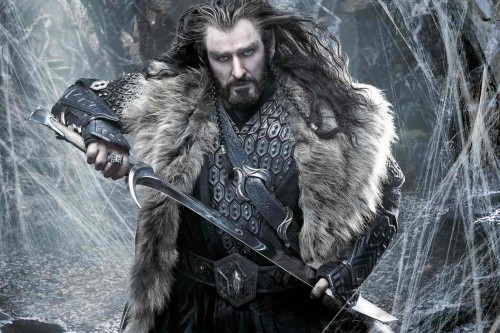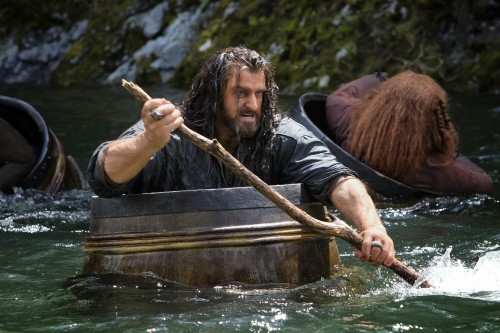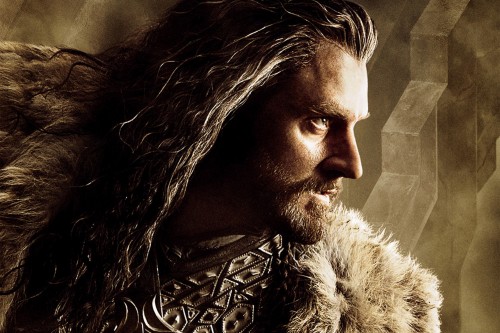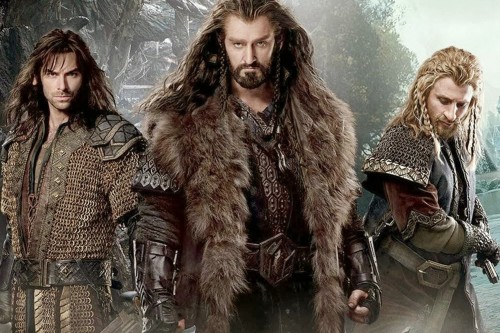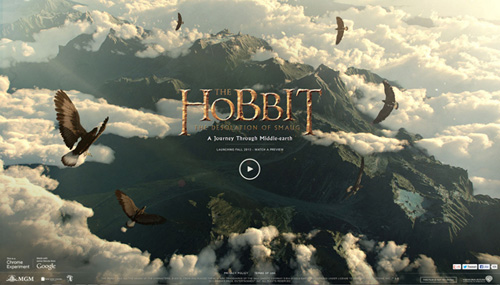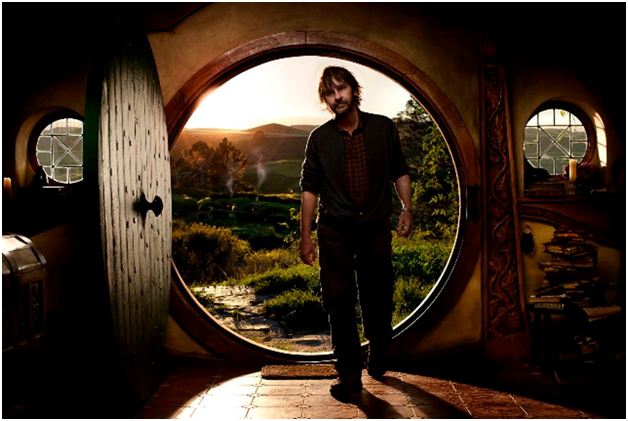Q & A with RICHARD ARMITAGE (THORIN) of “THE HOBBIT: THE DESOLATION OF SMAUG”
He made a huge impression as the Dwarf Prince, Thorin Oakenshield in last year’s “The Hobbit: An Unexpected Journey.” Now, Richard Armitage returns to play the same character in the highly anticipated sequel, “The Hobbit: The Desolation of Smaug.”
As a young Dwarf Prince, Thorin witnessed the destruction and terror wrought when a great fire-breathing dragon attacked the Dwarf Kingdom of Erebor. When no one came to the aid of the surviving Dwarves, a once proud and noble race was forced into exile. Now, as the strong, fearless fighter and respected leader of The Company of Dwarves, Thorin is determined to reclaim his homeland and destroy the beast that brought such misery upon his people.
Question: What is Thorin like when we meet him in this movie, and how is he different from the Thorin in the first film?
Richard Armitage: I think one of the interesting things about Thorin on the Quest is that when Gandalf is present, he has to defer to Gandalf’s authority. Thorin has always understood that Gandalf’s in the driver’s seat, so there’s more time in the second film when Gandalf is absent from the Dwarves and Thorin’s really in control. But, unfortunately, they seem to stumble into greater difficulties.
Getting incarcerated in the Woodland Realm by the Elves is, I think, possibly the lowest point that they get to on the Quest. They’re stripped of all their belongings, of all their weapons and all hope is lost, really. That’s key to the center of the second film in terms of character development. I think that’s the moment when Thorin realizes that Bilbo is not just one of the men on a Quest. He’s actually going to be an asset in terms of retrieving the Arkenstone. So really that’s where we get with Thorin in this sweeping arc, which is actually a dent in his success rating, as it were.
Q: Along those same lines, in this film, Thorin does finally set eyes on the Lonely Mountain, his lost homeland. What kind of effect does it have on him?
Armitage: It’s so interesting because it’s a really complicated push and pull, which I knew from the beginning, and figuring how to play it was quite a challenge. The Quest is everything that’s driving him forward. The map and the key are catalysts that drive him forward, the promise of his Kingdom, of his throne, which is very personal, and also the promise of reclaiming all of that wealth for his people which, again, is very personal. But, at the same time, the terror and the demon that sits inside of the Mountain is so repulsive to him that he’s pushed away from it as much as he’s drawn towards it. It’s a very complicated, emotional moment for them.
Q: You have said that when you first began to play this role, director Peter Jackson’s belief in you helped you to find the leader in yourself to play Thorin. How has that been as you’ve continued this journey?
Armitage: Well, I think it’s partly finding my own love for the character because he wasn’t somebody initially that I was in love with. I was often at odds with him and disagreeing with him, and all the while I’m trying to defend him. But I think I found that place in him whereby the thing I loved about him was his loyalty to his men and the fact that he would fight to the death for them.
Q: Can you tell me about the Elves that capture Thorin and the Company in the Mirkwood Forest? How does Thorin feel about these Elves?
Armitage: It’s Thorin’s worst nightmare, really. I mean, the Dwarves and Elves in general have had a very antagonistic history. They’ve always been at war, but this is very personal. When they were annihilated and forced to leave the Mountain into exile, Thorin stood looking up at Thranduil, sort of begging for his help. And Thranduil turned his back on them and didn’t give them any sanctuary, and they had to wander Middle-earth as vagabonds, and find a new life in the Blue Mountains. I don’t think that’s something that he’s been able to forget.
So, being captured by them and forced in front of Thranduil and then locked away in his prison, that’s what I consider to be the lowest point in Thorin’s career, as it were. But before he’s locked away, he does voice his feelings to Thranduil. He says, ‘This is what you’ve done to my people. This is why there’s this antagonism between us and I’ll never forgive you for that.’ So, there’s a certain satisfaction in being able to say those things, but nevertheless, Thranduil is going to stop them from going on the Quest and he locks him in the dungeons—locks which, incidentally, had been built and designed by Dwarves, so they know that they cannot get out.
Q: Working with Peter Jackson again, was the experience the same as before or was it different?
Armitage: It was different. I think there was an increased sense of trust between both of us. It was always there, but I think it was much more evident when you go back to shoot with someone again. He would work with much more detail. We had a lot more shortcuts to get to things because I understood exactly what he meant, really, without saying things.
And sometimes it takes you by surprise. I’d go away the night before and imagine how the scene would be, and come back in and the first thing Peter would do would be to tell me exactly what I’d imagined. I was like, ‘Oh, we really are on the same page.’ So that was a brilliant thing. And certainly in the final two weeks of pickups, it was very much myself and Peter working together. We were both pushed to the limit and we really got through the last week together. All I can say is it was a relationship based on trust.
Q: Some characters are going to be showing up for the first time in the second movie, such as Legolas, Tauriel, Thranduil and Beorn. I was wondering if you could talk about working with Orlando Bloom, Evangeline Lilly, Lee Pace and Mikael Persbrandt?
Armitage: The only character I never really got to work with, sadly, was Evangeline, although we were in the same scene together and we share a look. But, yeah, I really enjoyed working with Mikael, and the same with Lee and Orlando.
I had a great scene with Lee, which was very, very satisfying to play because, as I’ve said before, it’s a chance to hear the voice of the Dwarves staking their claim and you don’t often get to hear that. With Orlando as well, there was a great scene where he takes Orcrist from Thorin and believes that Thorin has stolen it from the Elves because Orcrist is an Elvish blade.
Q: Since the release of “The Hobbit: An Unexpected Journey,” has your life changed in any way? Do you have people come up to you and want to talk about him?
Armitage: People don’t really recognize you. But I had a really great one. We were doing the DVD release in Australia. I did a Q&A in a cinema, and I had such a great response. I really felt the enthusiasm for the movies, but also particularly for the character.
One of the great questions was, ‘Who was the love of Thorin’s life?,’ which is something that I had thought about. People really invest in not just the character or the story but the history of the character and the future of the character. It’s something that stimulates you to ask more questions when you’re developing a role.
A production of New Line Cinema and Metro-Goldwyn-Mayer Pictures (MGM), “The Hobbit: The Desolation of Smaug,” will be released in 3D, 2D and IMAX theaters in the Philippines by Warner Bros. Pictures on Dec. 11, 2013.

